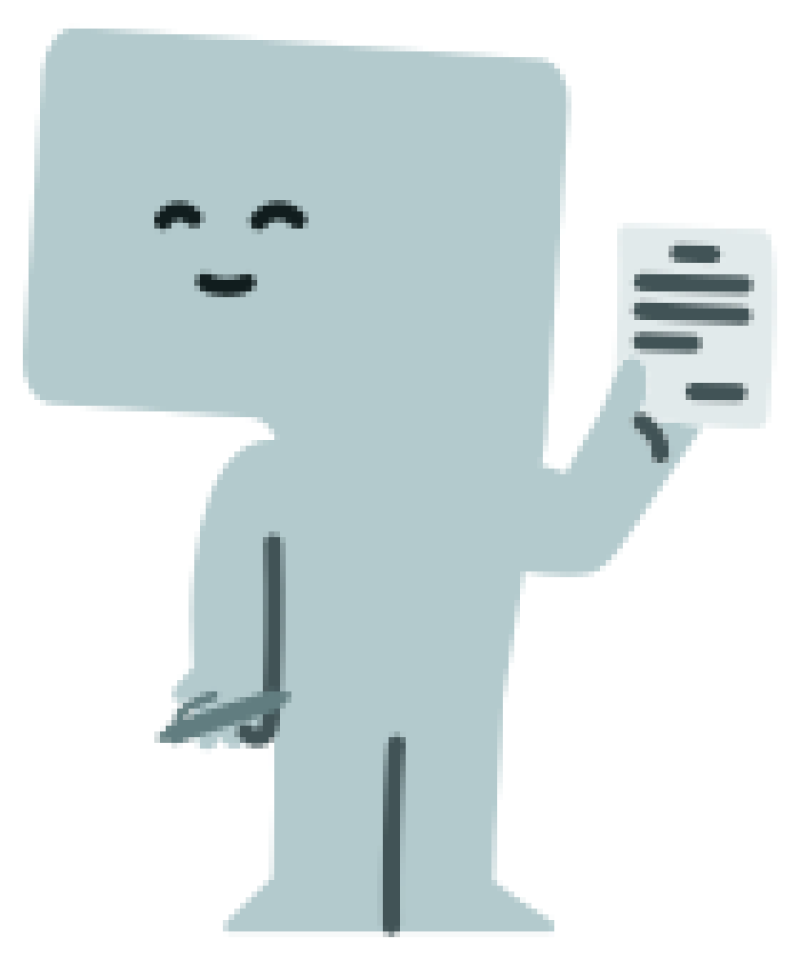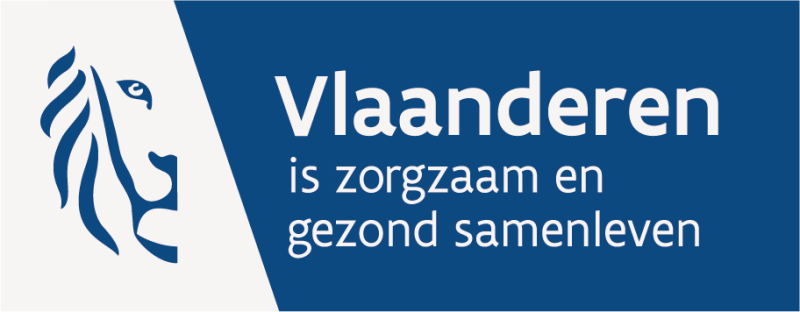Download our teaching packages
Free packages 'First Aid for Difficult Feelings'
Belgian Red Cross-Flanders developed 3 "First Aid for Difficult Feelings" packages specifically for 8- to 10-year-olds . These packages support teachers in the classroom, parents at home or supervisors of the youth movement or playground activities in teaching children helping skills. Children thus learn to help and support their friend, classmate or teammate who is having a harder time.
Common threads in the three packages are five key messages:
- Recognizing non-fluff: How can you tell when someone is feeling a little down?
- Normalizing difficult feelings: how do you let someone know it's ok to feel "not ok"?
- Offering support: how can you act to help?
- Enlisting help for nonplussed: how to determine together who to turn to next?
- Keeping in good touch and self-care: how do you continue to take care of yourself even as you help others?
The focus is thus on learning additional tools that children can use in their own role as classmates/friends/... They learn how to invite each other to tell how they are really doing, to be able to listen to each other well and together to think about who they can turn to for more help but also to discuss more difficult feelings.
For whom.
It is a ready-to-use, interactive and free digital package suitable for 2nd grade elementary school children and/or ages 8 - 10. As an adult facilitator, you can get started with one of the packages within your classroom, youth movement, living environment, at your home ...
Three packages have been developed:
- Living Environment: This is a 20-minute listening story that you can play at any location. The manual includes some tools that you can grab if you like to start the conversation.
- Organized Leisure: This package consists of different work forms that are connected through a story. The game lasts about 3 hours and is best played with a group of at least 4 people.
- Education: This is a board game. You can play this game in the classroom. The game takes about 60 minutes or longer and is best played with a group of at least 4 people.

Getting started together with Houvie!
Do you already know Houvie? Houvie is the buddy of everyone who is having a little trouble or is not so good in their skin. With a special first aid kit, Houvie is really there for everyone! Houvie takes you through all the "First Aid for Difficult Feelings" learning material.
Do you want to get started with these packages?
Language
Dutch
Price
Free download
Realization and partners
These packages are based on the "Guideline FAMP for and by children and adolescents. This guideline, based on scientific research, includes recommendations in the context of teaching supportive social skills and "psychosocial first aid" tailored to children and adolescents.
The guideline was developed by a guideline working group consisting of the Centre for Evidence-Based Practice (CEBaP) of Belgian Red Cross-Flanders, the First Aid Department of Belgian Red Cross-Flanders and a panel of experts. The project received support from the Care and Health agency of the Flemish government.

Q&A
Why get started with one of these packages?
Everyone faces difficulties or feels uncomfortable at times. That is part of life. Research does show that many mental health problems start at an early age. These often develop during the developmental period from 0 to 25 years. It is a vulnerable time when children and young people go through many changes and are searching for themselves or how to further shape their identity. Therefore, it is a good idea to focus reinforcing factors that contribute to stronger mental health, such as working on psychological wellbeing and resilience, as well as discussing difficult feelings. In this way, we work to protect and improve adult mental health. Working on mental wellness in the classroom, at home or in leisure time gives children tools they can use in later life.
Can didactic packages be divided into different phases according to time?
The different packages can be adapted according to the time and number of people. In the manual of the packages you will find different recommendations.
- Living environment: approx. 20 minutes
- Organized free time: approx. 3 hours
- Education: approx. 60 minutes
What languages are the packages available in?
This package came into development on behalf of the Agency for Care and Health. So we initially wrote it in Dutch. Currently there are no plans to translate it.
Why a package for children ages 8 - 10?
The package was developed for children with a developmental level of 8 - 10 years for several reasons. Research and the expert panel have shown that there are already many packages for young people on the topic of "mental well-being" and this mainly for high school students. But in terms of development, children aged 8 - 10 are in the phase before the first signs of puberty. Since adolescents at puberty may be at higher risk for mental health problems, it is important to teach relevant skills to support them in adolescence. Thus, we work to establish a foundation of these skills even before children enter adolescence. Consequently, the importance of teaching such skills within lower school age is strongly preventive
Are there any packages available for other age groups?
Currently, there are no packages for other age groups. Adolescents 16 and older may take the free adult training, and organizations/schools may request customized training for groups 16 and older. More information can be found here.
Can I take training to learn more about these packages?
No training was developed for the package. We refer here to the manuals that were developed with the package. They were developed so that you can guide this through the manual yourself if needed. After all, the main goal is to get children to engage in conversation with each other themselves.
Can I get training to assist children with their difficult problems?
No, in addition to the "First Aid for Difficult Feelings" package, Belgian Red Cross-Flanders offers basic training first aid for mental health problems to provide support for family, friends, colleagues ... This training focuses on supporting each other as adults and does not focus on children or adolescents. We provide additional tips around how to start the conversation with a child or youth in further questions.
How can I assist a student/child who is struggling?
Since Belgian Red Cross-Flanders itself has not yet developed guidelines for assisting children and adolescents as adults, please refer to Awel's listening tips for this purpose. These tips were created from the daily conversations Awel has with children and adolescents. In addition, they wrote about the power of listening in the report "Awel, what to do.
If you notice a child is struggling, you can initiate and control the conversation by asking a question like, "Hey, I see you've been a little quiet lately. Is there something you want to talk about?". If the child wants to talk to you, apply the listening tips. Is there nothing going on according to the child (or: does the child not want to talk to you)? Then at least you have shown that you are there for him/her.
Furthermore, you can possibly seek out a Max together. A Max is an adult confidant whom the child trusts 100%. Someone the child can have fun with, who they can let their heart out to, who they can go to with problems... You can find more information on Childfocus MAX(iedereeneenmax.be).
Don't worry if you are not chosen as a Max. Childfocus states that "Children and young people sometimes choose a Max outside the family to avoid losing face themselves or hurting their parents by sharing their problems or concerns." And also "Some topics or problems they prefer to discuss with someone else. Fear of angry or disappointed reaction from the parents or problems with the parents themselves sometimes cause children and young people not to talk to anyone ... We want to avoid that. The most important thing is that the children and young people talk to someone close to them, even if it is not the parents."
Want to know more about listening to children and adolescents?
- https://www.awel.be/over-awel/luister-podcast - the Awel podcast about listening
- https://www.awel.be/luister - the listening tips
What helplines can a child consult on their own or can I refer to?
There are several people and agencies to whom a child can turn with problems. In the school context, the first step may be to speak with the student counselor or the care teacher. The CLB can also provide guidance or - depending on the need - refer to other organizations or persons. Outside the school walls, there are other individuals or organizations a child can contact, such as their primary care physician, Awel or the JAC. A list of organizations children can turn to can be found here:
- GP
- Pupil supervisor/care teacher
- Integrity Liaison (in youth work).
- CLB (talk, email, phone or CLB@chat)
- Awel(www.awel.be; Phone number: 102; brievenbus@Awel.be )
- WHAT WHAT(No-nonsense info for young people | WHAT WHAT)
- Tejo(www.tejo.be)
- Overhead(www.overkop.be)
- JAC(www.jac.be)
- TeleOnthaal(www.tele-onthaal.be; Phone number: 106)
- Clear list of helplines for children and young people(Helplines for young people (tegek.be))
I have a question or feedback about the package.
Have you used the package and have some feedback? Do you have some tips and tricks or good examples of using this package yourself that you would like to share? Don't hesitate to contact us at FAMP@rodekruis .be.
Have another question you don't see listed? Feel free to let us know!
